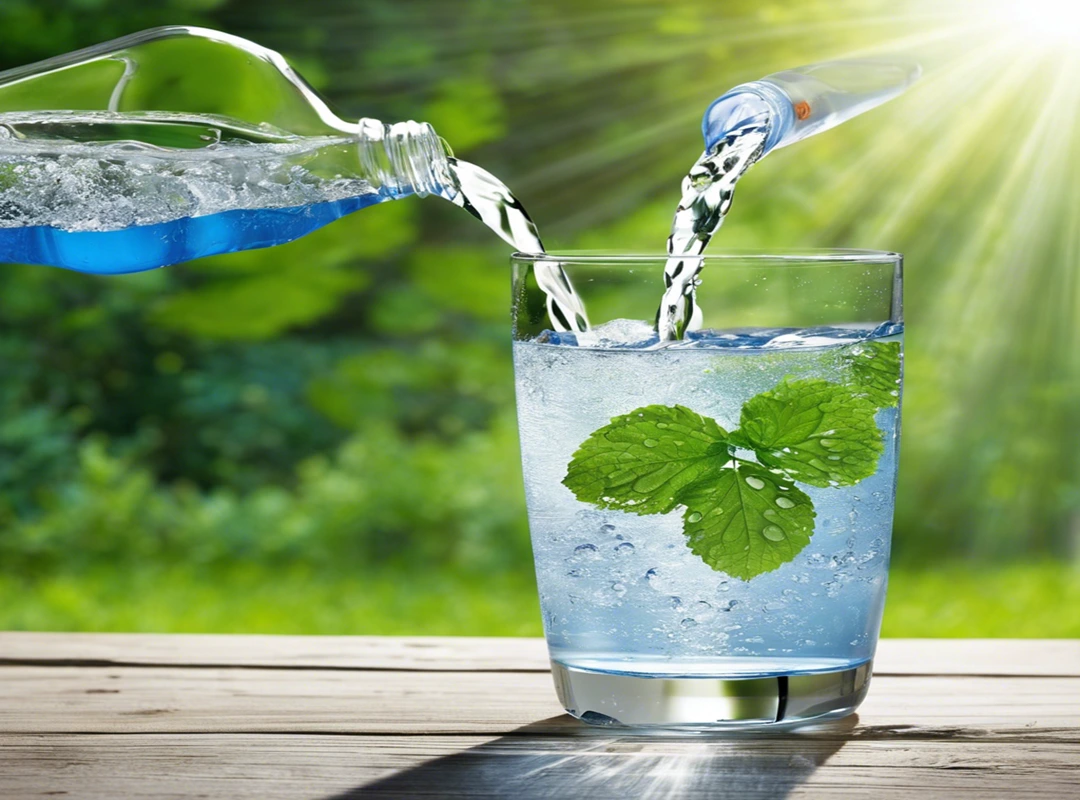We often overlook the most abundant substance in our bodies – water. Comprising about 60% of our body weight, this simple compound is fundamental to our health and well-being. Proper hydration is key to maintaining optimal physical and mental performance.
Water’s Role in the Body
Water plays a crucial role in almost every bodily process:
- Digestion and Nutrient Absorption: Water forms stomach secretions and digestive enzymes, helping to dissolve nutrients so our intestines can absorb them more efficiently.
- Temperature Regulation: Through sweating and respiration, water helps maintain a stable body temperature.
- Waste Removal: Water aids the kidneys and liver in filtering and eliminating waste products, reducing the risk of kidney stone formation and promoting healthier skin.
Hydration and Cognitive Function
The brain is particularly sensitive to hydration levels. Even mild dehydration can affect cognitive function, leading to:
- Decreased Attention: Difficulty focusing on tasks.
- Memory Impairment: Reduced ability to recall information.
- Slowed Reaction Time: Delayed responses to stimuli.
- Increased Fatigue and Anxiety: Feelings of tiredness and stress.
Optimal hydration is essential for maintaining mental clarity and emotional well-being.
Joint Health and Injury Prevention
Water is necessary for producing synovial fluid, which:
- Lubricates Joints: Acts as a shock absorber and reduces friction.
- Maintains Connective Tissue Elasticity: Keeps cartilage and ligaments flexible and resilient.
Staying hydrated helps prevent joint pain and supports overall mobility.
Weight Management and Metabolism
Water can aid in weight management by:
- Promoting Fullness: Water helps you feel full, reducing the likelihood of overeating.
- Aiding Fat Metabolism: Supports the process of metabolizing stored fat.
- Increasing Energy Expenditure: Helps burn off extra calories.
Hydration is a valuable tool in maintaining a healthy weight and boosting metabolic efficiency.
Cardiovascular and Immune Health
Water impacts the cardiovascular and immune systems by:
- Maintaining Blood Volume: Essential for the efficient transportation of oxygen and nutrients.
- Regulating Blood Pressure: Helps keep blood pressure in check; dehydration can lead to increased blood pressure and a faster heart rate.
- Supporting Immune Function: Proper hydration assists in the body’s natural defense mechanisms against illness and disease.
Mental Health Benefits
Adequate water intake is linked to:
- Improved Mood: Regular hydration is associated with better mood and emotional stability.
- Increased Energy Levels: Helps combat fatigue and improve overall vitality.
- Potential Reduction in Mental Health Symptoms: Some studies suggest hydration can help alleviate symptoms of anxiety and depression.
Hydration Guidelines
Hydration needs vary based on factors such as age, activity level, climate, and health status. A general recommendation for adults is approximately 2.7 to 3.7 liters (about 9 to 13 cups) of water per day. This should come from a combination of beverages and water-rich foods.
Practical Hydration Tips
- Drink Regularly: Sip water throughout the day rather than consuming large amounts at once.
- Incorporate Water-Rich Foods: Include fruits and vegetables with high water content, like cucumbers, oranges, and melons.
- Monitor Your Hydration: Pay attention to signs of dehydration, such as dark urine, dry mouth, or fatigue.
- Adjust for Activity and Climate: Increase water intake during physical activity or in hot weather.
Water is fundamental to our survival and profoundly impacts our health. It influences every system in the body, from cardiovascular and respiratory functions to immune health and mental well-being. By prioritizing hydration, we can support our body’s optimal performance and overall vitality. So, drink up and make water a key part of your daily routine for better health and well-being!


